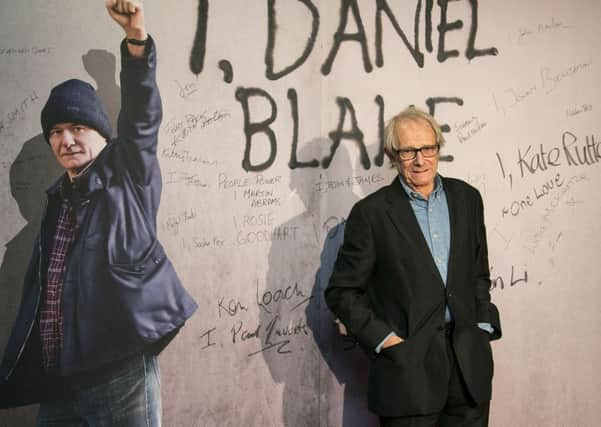Cruelty of Britain's benefits system lucidly exposed


This week sees the release of Loach’s incisive film about the horror of living in poverty, scraping to get by and attempting to grapple with the fearsome bureaucracy of Britain’s callous welfare system - a system, and we must be very clear about this - that is leading to unnecessary deaths simply because we perpetually decide to put deficit reduction before individual welfare.
I, Daniel Blake follows a 61-year-old joiner recovering from a heart attack who is unable to work because of his illness and is subsequently rejected for Employment Support Allowance. He meets and befriends a character named Katie who like him must avail of food banks to survive. Like Daniel she is stressed almost to breaking point, ashamed and terrified.
Advertisement
Hide AdAdvertisement
Hide AdNo matter how we as a society hear the tragic stories about men and women left to lead lives of despair and penury it seems that we refuse each time to put empathy and altruism before economic inequality or try to adopt a new philosophy that places the welfare of the whole community, especially the most vulnerable, before the self-interest and greed of the elite few.
But if western societies like our own are constructed so that self-interest is the only acceptable imperative to live by, what else can result from this but the exploitation of others, profit and gain set before kindness to others and dehumanisation of the poor?
With his latest film Ken Loach has done something absolutely vital: he holds a mirror up to the uncomfortable truth that the luxuries enjoyed by the rich and powerful are paid for by the struggling masses living hand to mouth and shamed by a rightwing press that espouses propaganda suggesting that so long as you and your friends and family are fine that is all that matters.
The message here is that so long as the suffering is not at your door and so long as you are building a great career, have great abs, a partner, a white picket fence around your spacious property with a BMW parked outside and enough lolly to buy good Scotch, then the rest of the world can go to hell in a handcart. But if we are to value ethical behaviour and wish to build our society on noble ideals then we have an obligation to extend the reach of our concern and kindness not just to those we live beside or share the same creed as but to society at large - and that means even to those we may dislike or feel passionately opposed to.
Advertisement
Hide AdAdvertisement
Hide AdInstead of consistently looking inwards, refusing to see beyond the parameters of our own province and wasting time arguing about such petty matters as flags, parades and the past as we tend to do to the point of tedium here in Northern Ireland, we should look to the whole human family and feel involved in their fate too. In Daniel Blake we should see that the poverty and suffering of others across the globe matters as much as our own.